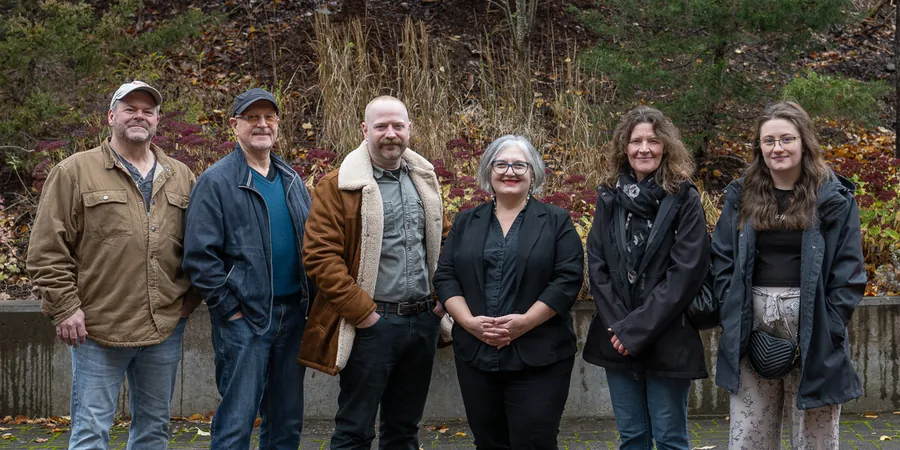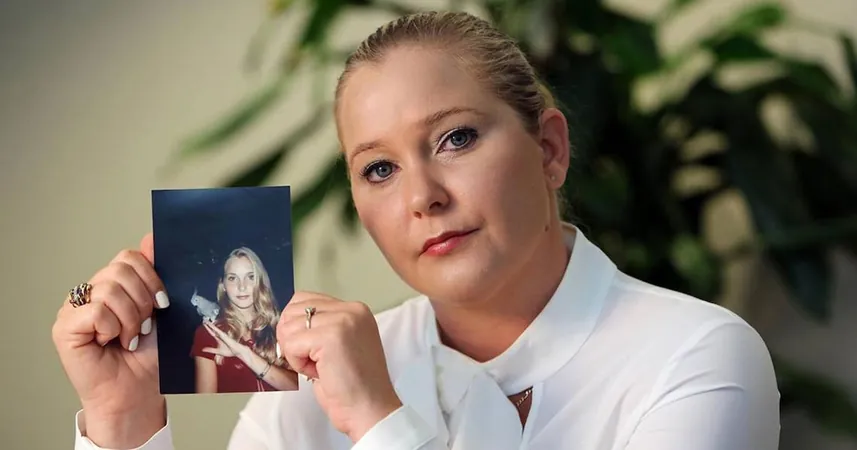
Transforming Cancer Research Through Personal Stories: A New Era in Patient Engagement
2025-01-16
Author: Sophie
With around 45% of Canadians expected to face cancer at some point in their lives, the staggering statistic of approximately 247,100 new cases this year equates to nearly 676 new diagnoses each day. While analyzing these figures collectively can yield valuable insights for research, it is crucial to remember that each cancer patient's journey is unique, often blending personal challenges with collective experiences.
This sentiment is the cornerstone of the Public Interest Group on Cancer Research, which has recently been honored with the prestigious President’s Award for Public Engagement Partnerships. This collaboration unites scientists from Memorial University’s Faculty of Medicine with insights from individuals who have been directly affected by cancer—patients, caregivers, and family members. Together, they co-design research initiatives that not only advocate for improved cancer care but also disseminate knowledge to the broader community.
One of the group’s pivotal members, Jason Wiseman, a social worker and active participant since its inception, brings a personal narrative to the collaboration. Wiseman's story is deeply intertwined with the group's mission; he served as a caregiver for his sister during her battle with cancer, notably at the onset of the COVID-19 pandemic when the healthcare system faced unprecedented strain. “This experience has been immersive,” Wiseman reflects, emphasizing the vital importance of including diverse voices in the research process.
This personal touch adds immense value to the group's initiatives. “All the ideas have come from the members, and they've participated to the best of their abilities,” Wiseman asserts, highlighting that the project is genuinely member-driven. His belief in the success of this inclusive model underscores a shift towards engaging those most affected by cancer in shaping the research landscape.
Dr. Sevtap Savas, a leading researcher within this endeavor, also recognizes the unique impact of direct public involvement. Initially entrenched in laboratory work, she has undergone a transformation in perspective. “I never had training in public engagement… I didn’t fully understand how important it could be,” Dr. Savas admits, acknowledging her previous experience as a “lab rat.” Now, she finds that the engagement has brought profound learning opportunities, not just for herself but also for her students, whom she encourages to actively seek out public involvement in their research.
The collective effort fostered by this partnership has produced an impressive portfolio of scholarly manuscripts, conference presentations, and even a podcast, showcasing the collaborative nature of their projects. By engaging in every aspect from co-designing research projects to participating in public outreach events, the group has successfully bridged the gap between academia and the communities they serve.
“This is a massive shift and an incredibly valuable one,” Dr. Savas shares. “We are more efficient, stronger, and better suited to make a meaningful impact.”
On January 27, this inspiring initiative will be formally recognized during a special ceremony where the Public Interest Group on Cancer Research will receive the President’s Award for Public Engagement Partnerships, an accolade that celebrates exemplary partnerships between Memorial University and public stakeholders.
As Canada grapples with the rising tide of cancer diagnoses, the commitment to a patient-centered approach in research gains increasing importance. The synergy created through personal experiences and scientific inquiry signifies a hopeful path forward in the fight against cancer, demonstrating that collaboration can lead to more effective solutions tailored to those most affected.









 Brasil (PT)
Brasil (PT)
 Canada (EN)
Canada (EN)
 Chile (ES)
Chile (ES)
 Česko (CS)
Česko (CS)
 대한민국 (KO)
대한민국 (KO)
 España (ES)
España (ES)
 France (FR)
France (FR)
 Hong Kong (EN)
Hong Kong (EN)
 Italia (IT)
Italia (IT)
 日本 (JA)
日本 (JA)
 Magyarország (HU)
Magyarország (HU)
 Norge (NO)
Norge (NO)
 Polska (PL)
Polska (PL)
 Schweiz (DE)
Schweiz (DE)
 Singapore (EN)
Singapore (EN)
 Sverige (SV)
Sverige (SV)
 Suomi (FI)
Suomi (FI)
 Türkiye (TR)
Türkiye (TR)
 الإمارات العربية المتحدة (AR)
الإمارات العربية المتحدة (AR)